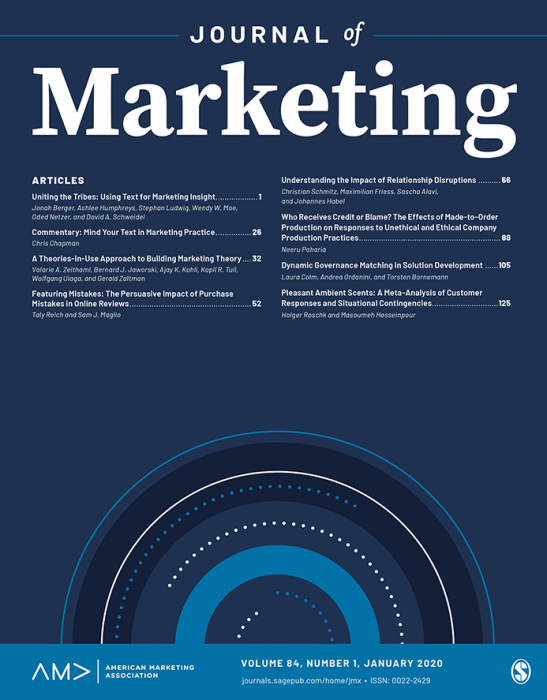电视广告中内容对冲击的影响
IF 11.5
1区 管理学
Q1 BUSINESS
引用次数: 4
摘要
对电视广告不感兴趣或厌烦的消费者可能会避开广告,这不仅限制了广告的效果,也限制了剩余的商业广告时间。通过改变频道来主动避免广告——被称为“切换”——是广告商和广播公司潜在的主要关注点。在两项研究中,作者调查了广告内容是否以及为什么会驱动或减轻电击,并建立了一个概念框架,将多种内容因素与影响电击的心理反应联系起来。他们通过绘制反映2500多名德国电视观众的刺激行为的数据集,以及代表96个类别的308个品牌的1315个广告点的广告数据和内容信息,来测试内容刺激关系。第一项研究的结果表明,广告创意与较少的刺激有关,而强烈的信息焦点和突出或早期的品牌元素整合与更多的刺激有关。研究结果还显示,功利(与享乐)消费目的的产品和搜索(与体验)商品的效果差异很大。第二项研究的结果表明,相对于享受而言,刺激(由感觉决定,如烦恼、冒犯或不知所措)是解释为什么广告内容会影响兴奋的核心机制。本文章由计算机程序翻译,如有差异,请以英文原文为准。
The Effect of Content on Zapping in TV Advertising
Consumers who are uninterested in or annoyed by a TV ad may avoid the ad, limiting the effectiveness of not only the ad but also the remaining commercial break. Active avoidance of ads by changing the channel—known as “zapping”—is potentially a major concern for both advertisers and broadcasters. In two studies, the authors investigate whether and why ad content drives or mitigates zapping and develop a conceptual framework linking multiple content factors to psychological reactions that then affect zapping. They test the content–zapping relationship by drawing on a data set reflecting the zapping behavior of over 2,500 German television viewers combined with advertising data and content information for 1,315 spots representing 308 brands from 96 categories. The results of the first study show that ad creativity is associated with less zapping, whereas a strong information focus and a prominent or early integration of branding elements are associated with more zapping. The findings also reveal that the effects differ significantly for products with a utilitarian (vs. hedonic) consumption purpose and for search (vs. experience) goods. The results of the second study show that irritation (determined by feeling, e.g., annoyed, offended, or overwhelmed), relative to enjoyment, acts as the central mechanism in explaining why ad content affects zapping.
求助全文
通过发布文献求助,成功后即可免费获取论文全文。
去求助
来源期刊

Journal of Marketing
BUSINESS-
CiteScore
24.10
自引率
5.40%
发文量
49
期刊介绍:
Founded in 1936,the Journal of Marketing (JM) serves as a premier outlet for substantive research in marketing. JM is dedicated to developing and disseminating knowledge about real-world marketing questions, catering to scholars, educators, managers, policy makers, consumers, and other global societal stakeholders. Over the years,JM has played a crucial role in shaping the content and boundaries of the marketing discipline.
 求助内容:
求助内容: 应助结果提醒方式:
应助结果提醒方式:


